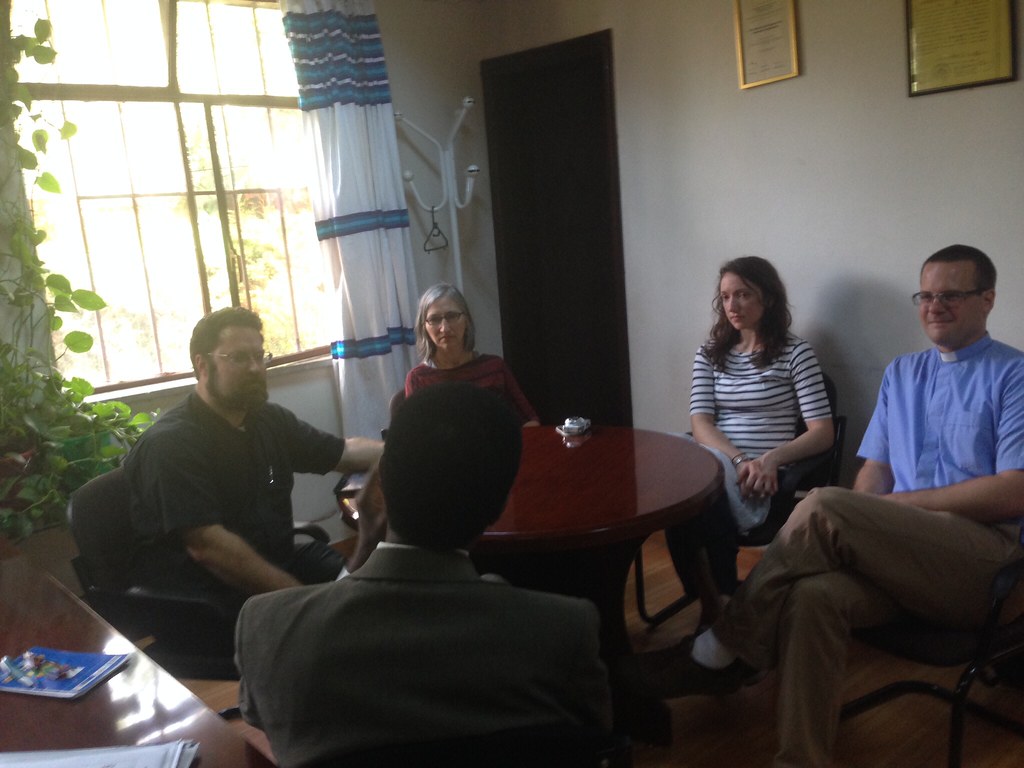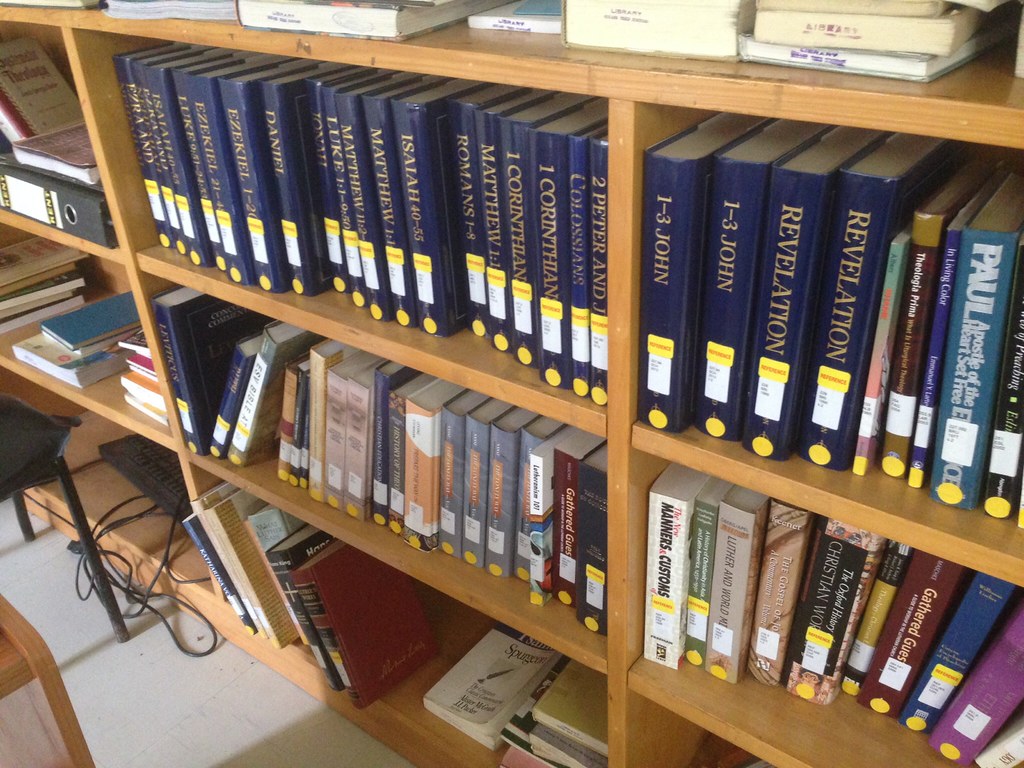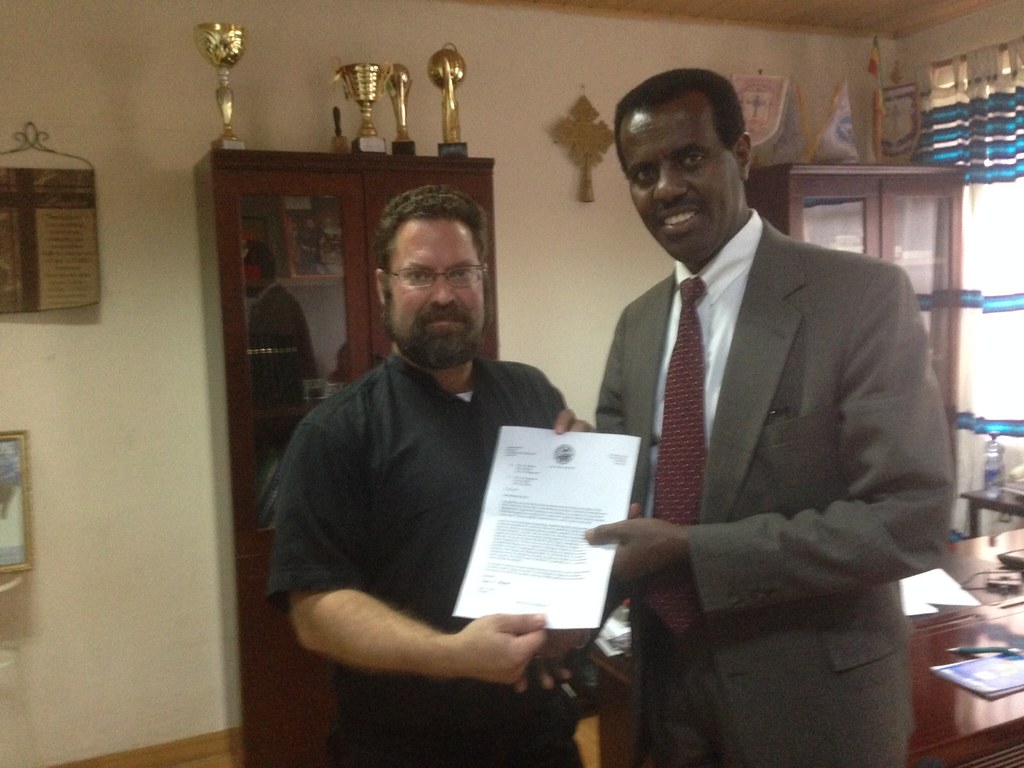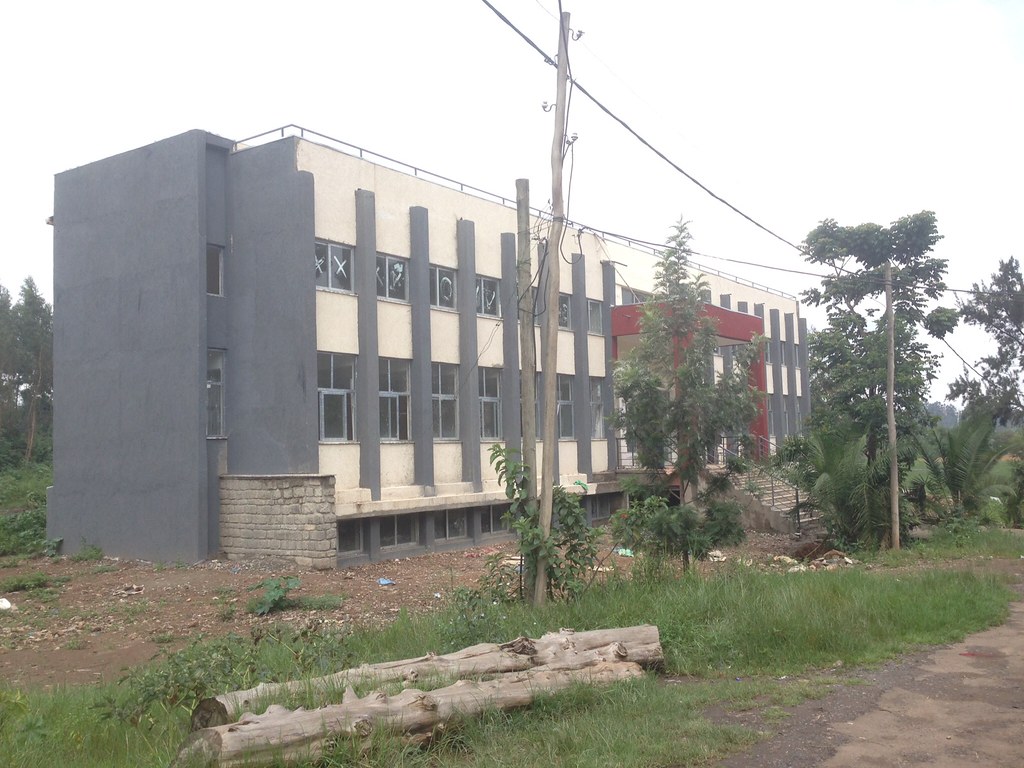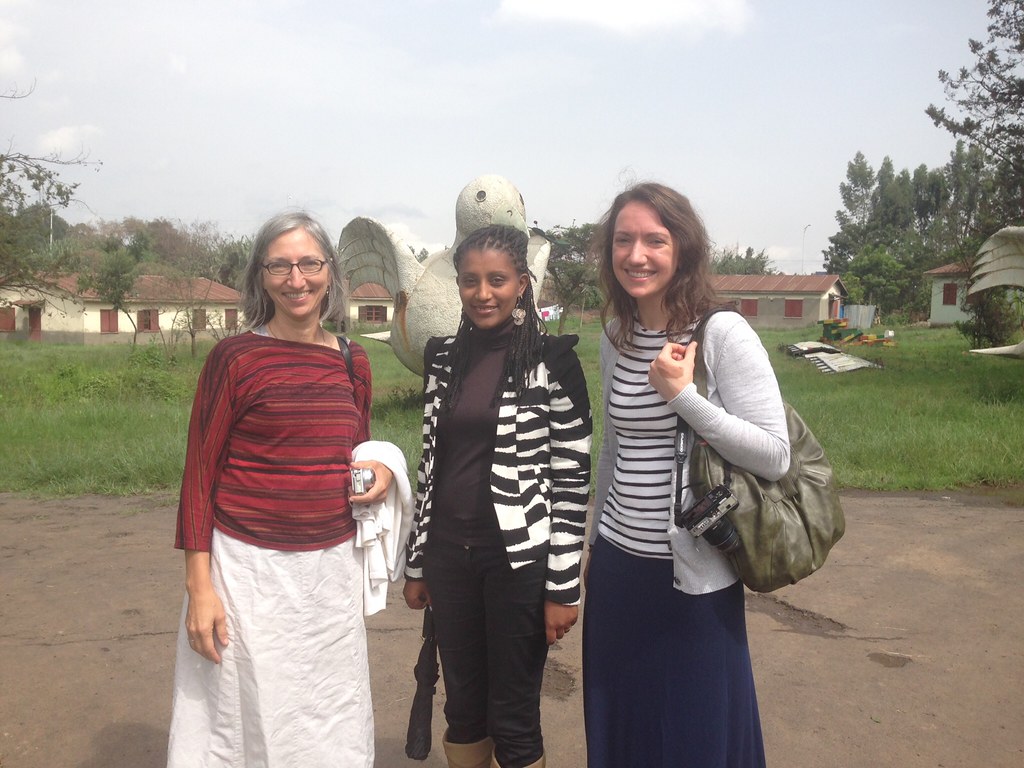The church in many places is plagued by "members" who slander, divide, sue, and attempt to pull missionaries into the conflict. It is not difficult to see what the Scripture and the Lutheran Confessions say about these matters.
The Bible illustrates, explains, and offers solutions for interpersonal conflict. Among the more notable instances of interpersonal conflict recorded in the Bible are the hostilities between Cain and Abel (Gen. 4:1–16), Abram and Lot (Gen. 13:8–18), Jacob and Esau (Gen. 25–27; 32–33), Jacob and Laban (Gen. 29–31), Saul and David (1 Sam. 18–31), Mary and Martha (Luke 10:38–42), Jesus’ disciples (Mark 9:33–37; Luke 22:24–27), Paul and Barnabas (Acts 15:36–41), and the Corinthian believers (1 Cor. 1:10–12; 3:2–4; 11:18).
The root cause of interpersonal conflict is sin (Gal. 5:19–20). James explains that fighting is the result of uncontrolled passions and desires (James 4:1–3). The book of Proverbs characterizes those who stir up conflict as persons given to anger (Prov. 15:18; 29:22), greed (Prov. 28:25), hate (Prov. 10:12), gossip (Prov. 16:28), and worthless perversions (Prov. 6:12–15). Such conflicts inevitably result in personal destruction (Prov. 6:15), discord (Prov. 6:14), and strife (Prov. 10:12; 16:28). It is no wonder that “the Lord hates … who stirs up trouble among brothers” (Prov. 6:16, 19 HCSB).
The Bible places great value on the ability to live at peace with one another (Ps. 34:14; Mark 9:50; Rom. 14:19; 1 Thess. 5:13; Heb. 12:14; 1 Pet. 3:11), in unity (Ps. 133:1), and harmony (Rom. 15:5–6). At the same time, the Bible declares unequivocally that such peace is given only by God (Num. 6:26; John 14:27; 16:33; 2 Cor. 13:11; 2 Thess. 3:16) and lived out only as believers pattern their lifestyles after that of Jesus (Phil. 2:3–8).
Above text from Chad Brand et al., eds., “Conflict, Interpersonal,” Holman Illustrated Bible Dictionary (Nashville, TN: Holman Bible Publishers, 2003), 330.
This citation found on the LCMS Missouri District website page on Conflict Management & Reconciliation at https://mo.lcms.org/conflict-management-reconciliation/
Given the references above, our confessions have - as we expect - firm footing in the places where they address conflict, ecclesiastical structures, good order, and lawsuits.
I. The 8th Commandment
When any Christian is approached for the purpose of discussing another, he must cloak himself in his relation to his neighbors with the mind God appoints in the 8th Commandment, “Thou shalt not bear false witness against thy neighbor.”
In furtherance of this commandment, Luther in our Small Catechism explains, “We should fear and love God that we may not deceitfully belie, betray, slander, nor defame our neighbor, but defend him, speak well of him, and put the best construction on everything.”
Luther in his Large Catechism (LC) expounds again:
No one shall use the tongue to harm a neighbor, whether friend or foe. No one shall say anything evil of a neighbor, whether true or false, unless it is done with proper authority or for that person’s improvement. Rather, we should use our tongue to speak only the best about all people, to cover the sins and infirmities of our neighbors, to justify their actions, and to cloak and veil them with our own honor. (LC 285)
Thus it is clear that in all conversation we are to put the best construction on everything, defend, and speak well of our neighbor, and even to cover their infirmities with our own honor. This must be our attitude in any discussion about a brother. As faithful pastors and missionaries, we strive to not only abide by the commandment but to remind all who approach us of the same.
II. The Divine Appointment of Leaders, Bishops, and Overseers
God Himself has appointed for us pastors, bishops, and overseers, whether through election by the people, appointment by one or a committee, or otherwise. In all matters of dealing with authority in the church, Scripture is direct and clear: “Obey your leaders and submit to their authority. They keep watch over you as men who must give an account. Obey them so that their work will be a joy, not a burden” (Hebrews 13:17). Even of the teachers of the law and the Pharisees, Christ said, “You must obey them and do everything they tell you” (Matthew 23:3).
A Christian must cloak himself in his relation to authorities with the mind God appoints in the 4th Commandment, “Thou shalt honor thy father and thy mother, that it may be well with thee and thou mayest live long on the earth.”
In furtherance of this commandment, Luther in our Small Catechism explains, “We should fear and love God that we may not despise our parents and masters, nor provoke them to anger, but give them honor, serve and obey them, and hold them in love and esteem.”
Luther in his Large Catechism expounds again upon this first and greatest of the commandments relating to our neighbor (LC.103) clearly identifying the four kinds of fathers in this commandment: fathers by blood, fathers of a household, fathers of the nation, and spiritual fathers. In reference to 1 Tim 5:17, Luther writes, “They who would bear the name of Christian owe it to God to show ‘double honor’ to those who watch over their souls and to treat them well and make provision for them” (LC.161). The honor due to our spiritual fathers clearly extends beyond service, obedience, love, and esteem, to even “deference, humility, and modesty directed (so to speak) toward a majesty concealed within them” (LC.106).
Beyond direct Scripture and the Catechisms, our Lutheran Symbols speak considerably on our deference to our bishops in the Augsburg Confession (CA):
According to divine right it is the office of the bishop to preach the gospel, to forgive sin, to judge doctrine and reject doctrine that is contrary to the gospel, and to exclude from the Christian community the ungodly whose ungodly life is manifest – not with human power but with God’s Word alone. That is why parishioners and churches owe obedience to bishops according to this saying of Christ (Luke 10[:16]): ‘Whoever listens to you listens to me.’. (CA XXVIII.21)
For the sake of God’s command, everyone should honor and esteem with all reverence both authorities and powers as the two highest gifts of God on earth. (CA XXVII.4)
Again, if Paul mandates (Romans 13:1-7) to the church in Rome that they must submit to the governing civil authorities, who are doubtless pagans, how much more must we submit to the spiritual authorities who we can be assured “have been established by God.”
Even in the face of offensive personal conduct on the part of those in the church, Lutherans are prohibited from being advocates or participants in schism: “Christ has also warned us in his parables on the church that when offended by the personal conduct of either priests or people, we should not incite schisms as the Donatists wickedly did” Ap VIII.49.
III. Good Order in the Church – for the Sake of Love and Peace
Beyond the commandment to defend our neighbor, speak well of him, and put the best construction on everything, and beyond the commandment to obey our leaders and submit to their authority, both of which are fully supported and applicable as expounded in our Lutheran Symbols, we also confidently hold that God has established in His church good order, and this for our own benefit – for the sake of love and peace.
Concerning church regulations made by human beings, it is taught to keep those that may be kept without sin and that serve to maintain peace and good order in the church. (CA XV.1)
Regulation belongs rightfully in the Christian assembly for the sake of love and peace, to be obedient to bishops and pastors in such cases, and to keep such order to the extent that no one offends another – so that there may not be disorder or unruly conduct in the church. (CA XXVIII.55)
In all families and communities harmony needs to be nurtured by mutual responsibilities, and it is not possible to preserve tranquility unless people overlook and forgive certain mistakes among themselves. In the same way, Paul urges that there be love in the church to preserve harmony, to bear with (if need be) the crude behavior of the brothers [and sisters], and to overlook certain minor offenses, lest the church disintegrate into various schisms and lest enmities, factions, and heresies arise from such schisms. (Ap IV.232)
Therefore again we as Christians keep church regulations, obedience to bishops and pastors, and overlook and forgive mistakes, all for the sake of peace and unity and to preserve the church without schism as the bearer of nothing less than salvation.
IV. About Lawsuits
For these reasons and more, it is the mandate of Paul that the church self-regulate, operate, address conflicts or schism within its own confines, and propagate peace and unity for the sake of the Gospel message. This the church does within the bounds of regulations and good order and under the guidance of her bishops and pastors. To this end, Paul’s teaching in 1 Corinthians 6 is clear:
When one of you has a grievance against another, does he dare go to law before the unrighteous instead of the saints? Or do you not know that the saints will judge the world? And if the world is to be judged by you, are you incompetent to try trivial cases? Do you not know that we are to judge angels? How much more, then, matters pertaining to this life! So if you have such cases, why do you lay them before those who have no standing in the church? I say this to your shame. Can it be that there is no one among you wise enough to settle a dispute between the brothers, but brother goes to law against brother, and that before unbelievers? To have lawsuits at all with one another is already a defeat for you. Why not rather suffer wrong? Why not rather be defrauded? But you yourselves wrong and defraud—even your own brothers!
Paul suffered all for the sake of the Gospel – and he suffered much less than Christ Himself suffered. The clear proclamation of the Gospel must not have impediments placed before it at the conscious decision of man. To file a lawsuit against a Christian, and by extension against an officer of the church or, deplorable as it is to consider, against the church itself, is to risk the faith of believers and unbelievers alike. For if there can be no peace or reconciliation in the church which Christ Himself rules, how can that church bring a message of peace and reconciliation to heathens and unbelievers?
The Apostle Paul clearly says to a Christian who dares to file a lawsuit in the secular courts against another Christian, “Shame!” You have shamed yourself, the church, and Christ in your action. A lawsuit is no easy matter to bring, requiring extensive forethought, decision, and resources. We must therefore assert that any one who files a lawsuit against a Christian has consciously repeatedly elected to break this command, has risked his own salvation, or is no Christian at all. Those in such conflict elect to openly violate Scripture, ignore the commands of Moses and Christ to love one another, prevent themselves from approaching the altar to receive the Sacrament, and in fact distance themselves from the whole of the body of Christ and from God Himself. Let us be clear: When a Christian files a lawsuit against another Christian, he removes himself from the church, the Word, and the Sacraments, and in fact cannot be called a Christian at all!
V. Conclusion and Exhortation
Conflicts, schism, factions, enmity, and division risk the right and proper call of the church and open the church to heresy which risks nothing less than the salvation of God’s own people. This, then, is our call to schismatics, faction-builders, proponents of enmity and division, those in conflict, and those “Christians” who file lawsuits: Heed the 8th and 4th Commandments. Support the leaders God Himself has appointed over you. Submit yourselves and defer to your bishops. Release your public fights in the secular courts. Seek redress through the church in its own regulations and orders. Should your redress fail, humble yourselves in love and permit the Lord and Master of the Church to judge in His own time. For the church is greater than you, your offense, and your desire for affirmation, wealth, or justice. If you yourself should lose your faith it is an important matter, yes, but even more important is the public witness of the church where she is known to be – in the teaching and proclamation of the pure Gospel and the right administration of the Sacraments.
[updated August 14, 2023]
 Friday, February 6, 2015 at 9:28AM
Friday, February 6, 2015 at 9:28AM 





























